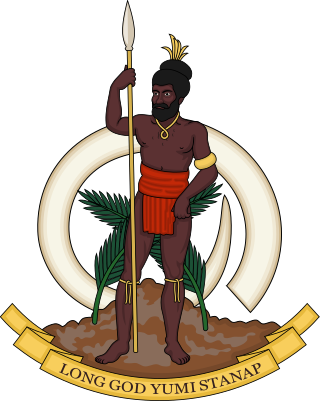
Vanuatu maintains diplomatic relations with many countries, and it has a small network of diplomatic missions. Australia, France, Japan, New Zealand, the People's Republic of China, South Korea and the United Kingdom maintain embassies, High Commissions, or missions in Port Vila. The British High Commission maintained a continued presence for almost a century, though closed from 2005 until reopening in 2019.

Papua New Guinea's foreign policy reflects close ties with Australia and other traditional allies and cooperative relations with neighboring countries. Its views on international political and economic issues are generally moderate.

The foreign policy of Solomon Islands as of 2008 was described by the Solomon Islands government as a "look north" policy, aimed as strengthening diplomatic and economic relations with Asian countries for development purposes.

Oceania is, to the People's Republic of China and the Republic of China, a stage for continuous diplomatic competition. The PRC dictates that no state can have diplomatic relations with both the PRC and the ROC. As of 2019, ten states in Oceania have diplomatic relations with the PRC, and four have diplomatic relations with the ROC. These numbers fluctuate as Pacific Island nations re-evaluate their foreign policies, and occasionally shift diplomatic recognition between Beijing and Taipei. The issue of which "Chinese" government to recognize has become a central theme in the elections of numerous Pacific Island nations, and has led to several votes of no-confidence.

Papua New Guinea–United States relations refers to the diplomatic relations between Papua New Guinea and the United States of America. The two countries established diplomatic relations following Papua New Guinea's independence on September 16, 1975. The two nations belong to a variety of regional organizations, including the Asia-Pacific Economic Cooperation (APEC) forum; the ASEAN Regional Forum (ARF); the Pacific Community (SPC); and the South Pacific Regional Environmental Program (SPREP).

Solomon Islands – United States relations are bilateral relations between Solomon Islands and the United States. Initial relations were forged during World War II with what was then the British Solomon Islands Protectorate during the Japanese occupation, and this relationship remained strong as Solomon Islands gained its independence in 1978. Relations continued until 1993 when post-Cold War budget cuts closed the United States Embassy in Honiara. Beginning in 2022, in an attempt to counter growing Chinese influence in Solomon Islands, the United States has demonstrated increased commitment to the restoration of relations with the country. In February 2023, the United States re-opened its embassy in Honiara.
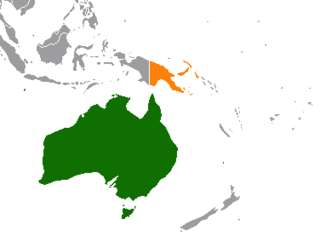
Foreign relations exist between Australia and Papua New Guinea. Papua New Guinea is Australia's closest neighbour and a former colony of Australia. Both nations share the same continent in the Oceania region. Papua New Guinea has developed much closer relations with Australia than with Indonesia, the only country with which it shares a land border. The two countries are Commonwealth realms. In contemporary times, Papua New Guinea is one of the largest recipients of Australian aid. Some critics have pointed to instances where this has led to an outsized Australian influence on Papua New Guinea politics.
Cuban-Pacific relations are diplomatic, economic, cultural, and other relations between the Cuba and countries situated in Oceania. In the 2000s, Cuba has been strengthening its relations with Pacific nations, which have, for the most part, responded favorably to Cuban medical aid in particular. The first Cuba-Pacific Islands ministerial meeting was held in September 2008 in Havana, with government members from ten Pacific countries—Kiribati, Tuvalu, Nauru, Solomon Islands, Fiji, Tonga, Vanuatu, Samoa, the Federated States of Micronesia and Papua New Guinea—attending. The meeting was a consolidation rather than a starting point of Cuban-Pacific relations.
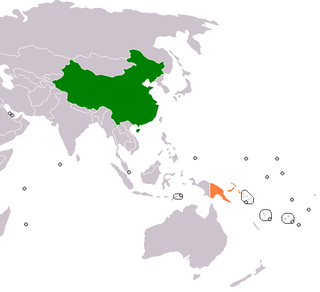
The Independent State of Papua New Guinea and China (PRC) established official diplomatic relations in 1976, soon after Papua New Guinea became independent. The two countries currently maintain diplomatic, economic and, to a lesser degree, military relations. Relations are cordial; China is a significant provider of both investments and development aid to Papua New Guinea.
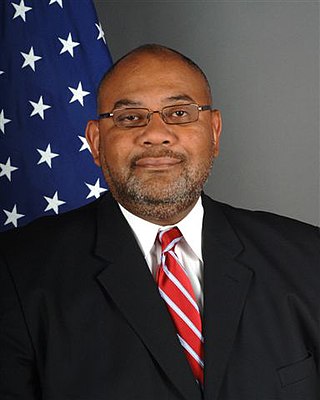
Teddy Bernard Taylor is a United States diplomat. A member of the Senior Foreign Service, Taylor served as the United States Ambassador to Papua New Guinea, Solomon Islands and Vanuatu. He was succeeded by Walter E. North on November 7, 2012.
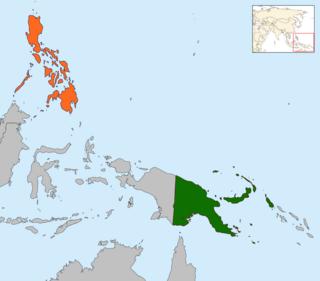
Papua New Guinea–Philippines relations are the bilateral relations of Papua New Guinea and the Philippines. Papua New Guinea has an embassy in Manila and the Philippines has an embassy in Port Moresby, which is also accredited to the Solomon Islands, Vanuatu and Fiji.
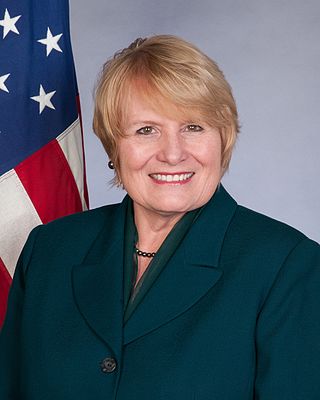
Catherine Ebert-Gray is an American diplomat. She served as the United States ambassador to Papua New Guinea, Solomon Islands and Vanuatu.
International relations exist between the nation of India and the Pacific Island Nations.












